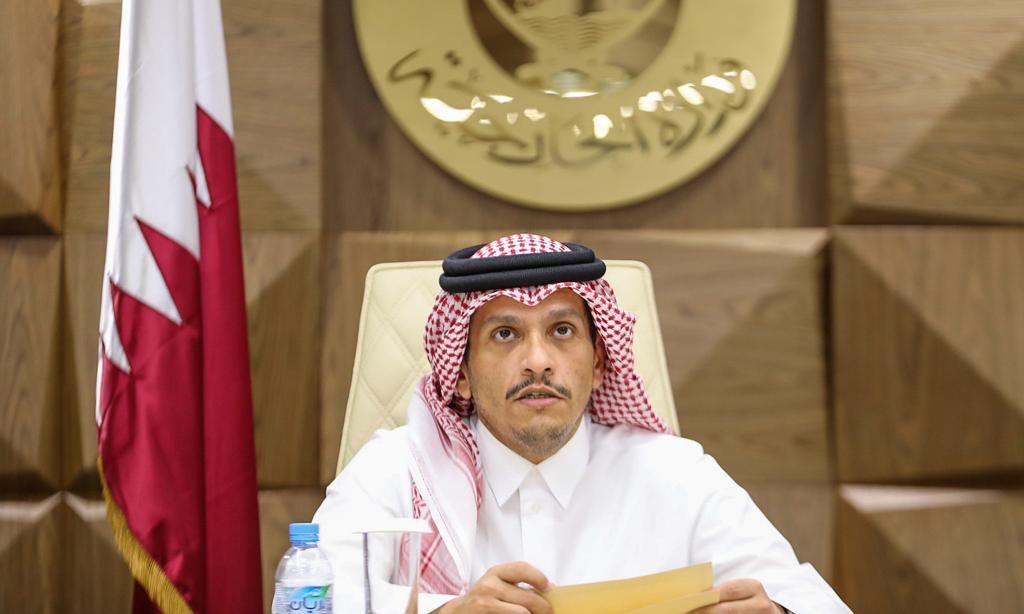Sheikh Mohammed has been at the forefront of mediation efforts in critical files regionally and globally.
Time Magazine named Qatar’s Prime Minister and Minister of Foreign Affairs, Sheikh Mohammed bin Abdulrahman Al-Thani, one of the “100 Most Influential Figures of 2024.”
The list revealed on Wednesday, features figures from different countries and categories, including innovators, titans and leaders.
Karl Vick, Time editor-at-large, listed Qatar’s seasoned diplomat in the ‘leaders’ category, citing his success in placing the tiny Gulf nation under the global spotlight, whether it is through its gas industry, the 2022 FIFA World Cup or mediation efforts.
“The kingdoms of the Persian Gulf prosper by providing the world oil and gas, and the resulting fortunes fuel desires for prestige. Tiny Qatar, by hosting the 2022 World Cup, showed just how much attention that can bring,” Vick said.
Holding a Bachelor’s degree in Economics and Business Administration from Qatar University, Sheikh Mohammed was appointed as the foreign minister of Qatar in 2016 and the prime minister in 2023.
The year after he was appointed a foreign minister, Qatar was at the centre of the Gulf region’s worst diplomatic rift.
From 2017 until 2021, Qatar was subjected to an illegal air, land and sea blockade by Saudi Arabia, the United Arab Emirates, Bahrain, and Egypt over claims that it supported terrorism.
Those claims, however, were vehemently rejected and dismissed as “baseless” by Qatar.
Throughout the crisis, Qatar stood as a resilient country and Sheikh Mohammed was praised by the local population for his steadfast efforts in rising from the crisis, even gaining the nickname “knight of the blockade.”
As Qatar faced a wave of criticism in the lead-up to the 2022 FIFA World Cup, Sheikh Mohammed repeatedly, and diplomatically, dodged all critics, displaying the country’s welcoming and hospitable culture before and during the event.
Global mediation efforts
Sheikh Mohammed has been at the forefront of mediation efforts in critical files regionally and globally.
Most notably, the Gulf state managed to bring the former Afghan government and the Taliban to the table of negotiations in 2020 to reach a peaceful settlement.
During the same year, Qatar brought the United States and the Taliban together following more than a decade of war, resulting in the Doha Agreement.
Qatar continued to hold mediation talks until the last stretch, just days before the Taliban captured Kabul in 2021.
“In Qatar, host to both a massive U.S. air base and a Taliban office, balancing acts are a court tradition,” Vick said.
In the wake of the Taliban’s takeover, Qatar led history’s largest airlift of people and successfully evacuated more than 80,000 Afghans and foreigners from the country. Its efforts in Afghanistan have gained the country the status of the major non-NATO ally in 2022 by the U.S.
To date, Sheikh Mohammed continues to advocate for Afghans’ rights, especially women and girls following the Taliban’s ban on work and education since they seized power.
The following year, Qatar succeeded in holding talks between more than 50 parties in Chad in 2022 to end a long period of violence. After months of mediation, different sides signed the Chad Peace Agreement.
Qatar has also been a key communicator between the U.S. and Iran to restore the 2015 nuclear deal, formally known as the Joint Comprehensive Plan of Action.
This resulted in a historic deal on September 18, 2023, which saw the release of five Iranians and five Americans as well as the unfreezing of $6 billion in Iranian assets overseas.
Qatar also emerged as an interlocutor between the U.S. and Venezuela last year.
On December 21, 2023, Qatar’s mediation resulted in a prisoner exchange deal of 11 prisoners between the U.S. and Venezuela. The swap marked the largest release of US prisoners in Venezuela’s history, according to the Associated Press.
Meanwhile this year, Qatar assumed a more complex and critical role to end Israel’s six months long war in Gaza and release all captives from Hamas.
“It earned a more sober prominence, emerging as a trusted interlocutor between Israel and Hamas[…]in his dual role as Prime Minister and Foreign Minister, has ridden point on the turbulent negotiations that so far have produced a weeklong cease-fire and the release of more than 100 hostages,” Vick said.
Vick was referring to a deal last year mediated by Qatar and Egypt that lasted between November 24 and December 1. The truce led to the release of at least 110 captives from Hamas in Gaza.
Talks have since stalled with no ceasefire in sight, with Israel continuing its relentless genocidal war on Gaza.
Nearly seven months on, Israel killed nearly 34,000 people in Gaza while reducing the once vibrant coastal enclave to rubble.
